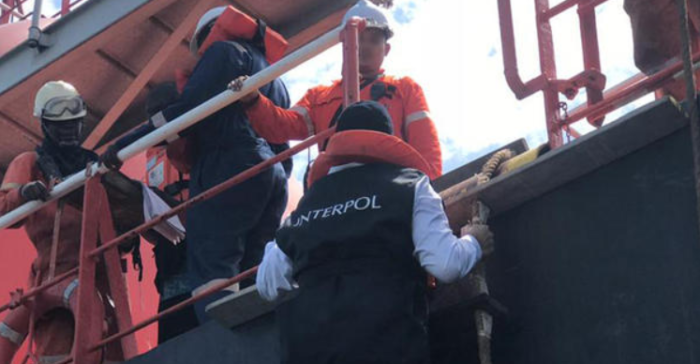On October, INTERPOL conducted a world-wide law enforcement operation aimed at investigating maritime pollution. The operation found 500 offences, including illegal discharges of oil and garbage from ships, violations of ship emissions rules, as well as river pollution and runoffs from land to sea.
“30 Days at Sea” was the codename of the month-long (1-31 October) operation that took place with the cooperation of 276 law enforcement and environmental agencies across 58 countries. The operation involved environmental, maritime and border agencies, national police forces, customs, and port authorities.
The international effort led to more than 5200 inspections resulted in at least 185 investigations, with arrests and prosecutions anticipated.
Criminals believe marine pollution is a low-risk crime with no real victims.
INTERPOL Secretary General Jürgen Stock stated.
Cases of serious contamination included the dumping of animal farm waste in Philippine coastal waters where local communities collect shellfish and children play.
In Germany, a vessel discharged 600 liters of palm oil into the sea, while in Ghana gallons of waste oil in large bottles were thought to be illegally dumped at sea.
Moreover, authorities prevented an environmental disaster in Albania by securing waters around a sinking vessel, which had about some 500 liters of oil. In addition, the pollution threat from the collision of two ships in French waters was contained thanks to preventive action during the operation.
Furthermore, technologies enabled authorities to detect offences, including the use of satellite images (in Argentina and Sweden), aerial surveillance (Canada and Italy), drones (Nigeria, Indonesia and Pakistan) and night vision cameras. An interesting fact is that surveillance technologies used in Qatar and Norway resulted in stricter compliance with regulations.
Marine pollution creates health hazards worldwide which undermine sustainable development and requires a multi-agency, multi-sector cooperative response within a solid global security architecture.
The INTERPOL chief added.
UN Environment Executive Director Erik Solheim said that the issue of illegal marine pollution is one that global communities may well be able to tackle successfully in the next decade.
INTERPOL’s Pollution Crime Working Group launched Operation 30 Days at Sea in response to a call to boost international law enforcement action against emerging environmental crime through action in the field. An awareness campaign in partnership with UN Environment will follow the operation in order to highlight the impact that marine pollution has on economic development and human and environmental security.































































